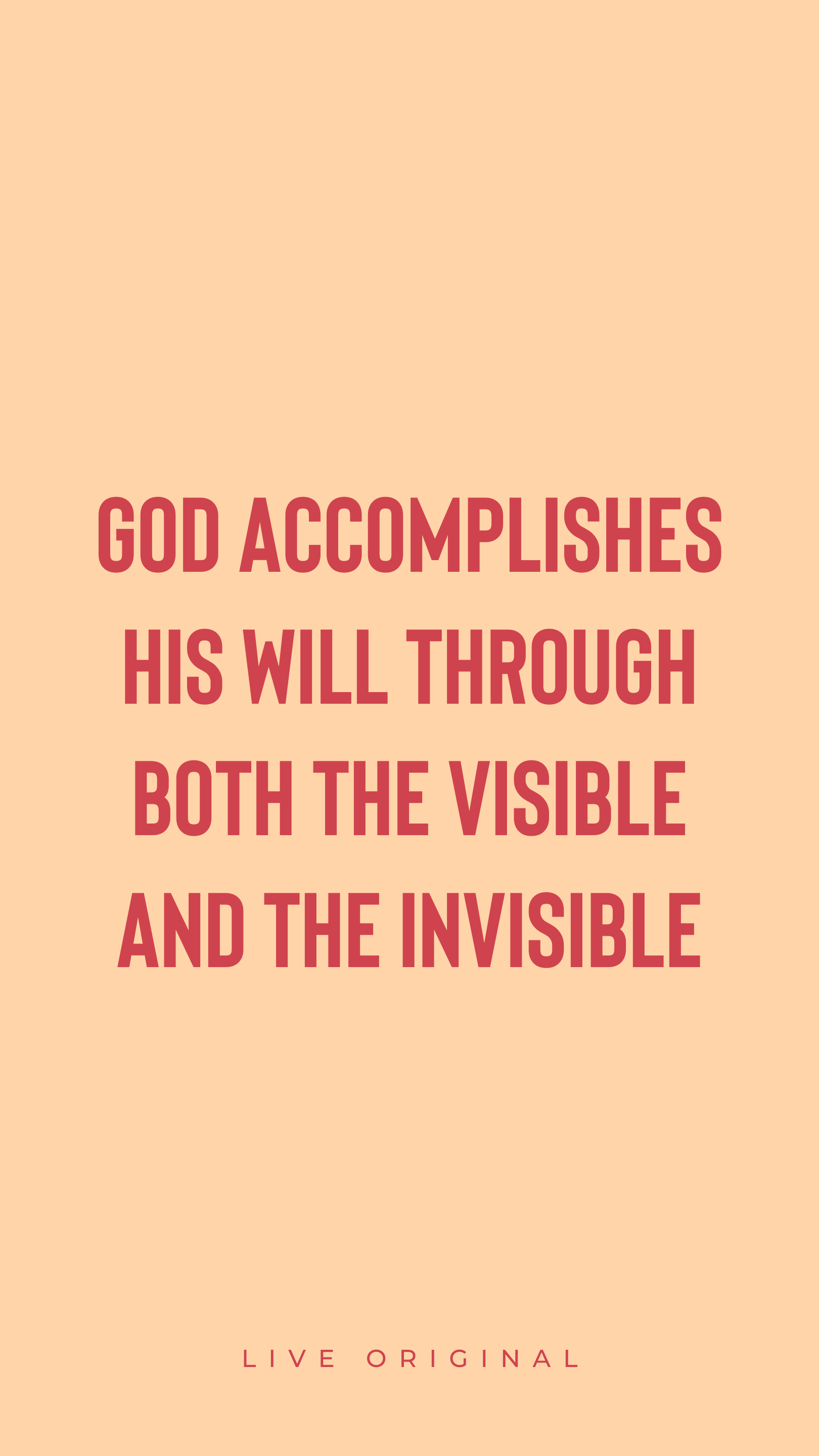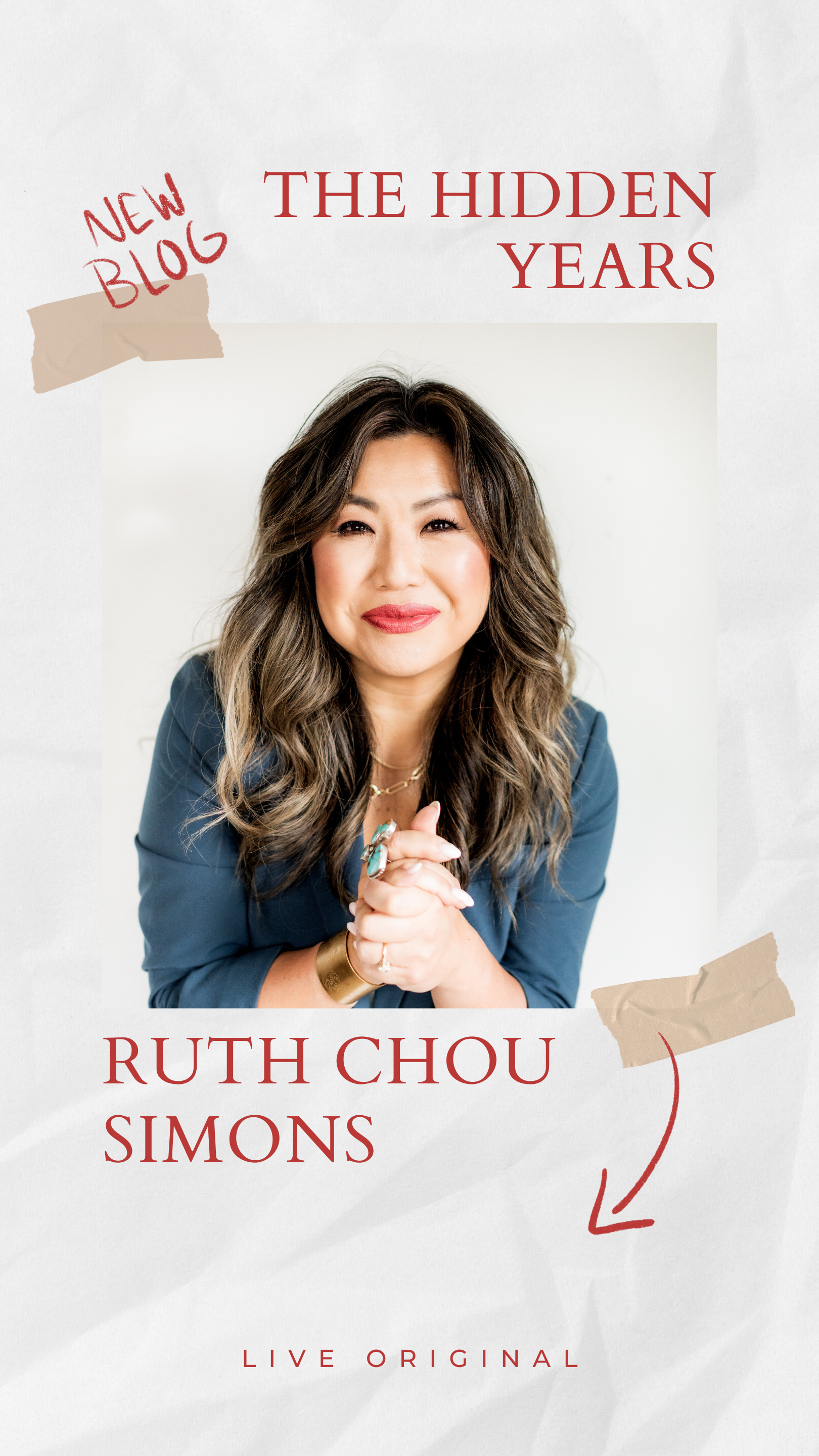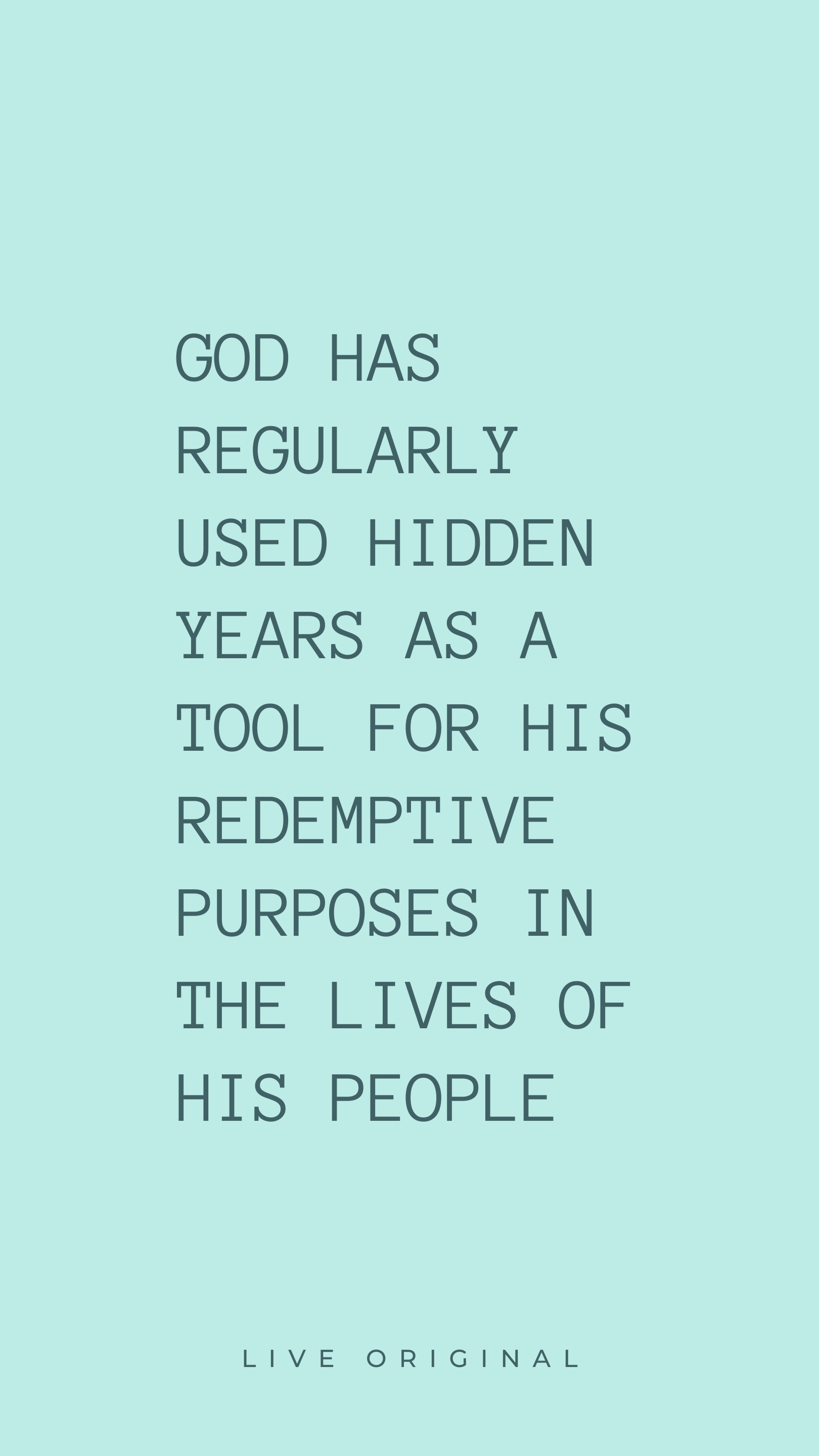
by Ruth Simons | Apr 9, 2024 | Being Planted, Career & Future, Life Advice, LO Library, Vision, Wisdom
When I was in my 20s, I almost opened a tiny art gallery and gift shop once to showcase my work in an empty loft space made available to me. It felt too daunting at the time, so I didn’t pursue it. Instead, I spent my days off from a retail job watching Oprah grant wishes and make dreams come true from a small television screen. I felt simultaneously so happy for those who were about to realize their dreams and yet so defeated, wondering if my creative pursuits would ever come out of hiding. I was twenty- four, newly married, with a fine arts degree and an unfinished seminary degree.
A few years later, I was in full-time ministry with Troy and expecting our first son, kicking off that ambitious decade-plus of bootstrapping, kickstarting, and ministry-building in the Simons household. I was honored to stand with and work alongside Troy in all our public endeavors, but I couldn’t help seeing the glaring disparity in our realities: his life was full of visible ministry while my life felt entirely hidden.
Hidden from public ministry, hidden from my potential, hidden at home with laundry and meal prep, hidden by the limitations of a season that felt like closed doors instead of big opportunities. Sure, I had giftings. And, oh, did I long to see them flourish in big ways for God’s kingdom. Missions! Leadership! The arts! Business! I was ready to pursue that tiny art gallery and wished I had when given the chance. I had big ideas for impacting the world with my passion and skills, but the opportunities God was giving me at that time were ones in obscurity, away from the limelight, grand openings, or the internet success I imagined as meaningful.
Perhaps your hiddenness stems from an unending list of tasks: perpetual meetings, clearing emails, filing taxes, driving in traffic, doing your job, and all the domestic to-dos that pile up day after day. Some of us feel hidden due to caring for elderly parents or young children who require most of our time and energy. Maybe you’ve experienced health limitations that leave you feeling benched. Or perhaps your life story just isn’t turning out the way you hoped or expected, and the hidden season you’re in feels fruitless.
But what if the hidden years—the seasons when we think our labors go unnoticed, when we feel benched by our limitations, when doors we expect to be open are shut instead, or when our giftings seem forgotten, wasted, or entirely invisible while our contributions feel small, insignificant, and simply hidden—proved more purposeful than we could ever imagine? What if we embraced the hidden years?
What if we welcomed hiddenness as much as we pursued visibility?
Visibility, multiplication, and platform aren’t the only roads that lead to impact. Embracing hiddenness may seem like a countercultural and counterintuitive path toward significance in our present age, but God has regularly used hidden years as a tool for his redemptive purposes in the lives of his people.
It’s easy to believe that, in order for God to use us, our trajectory must go from small to big, from unrecognized to widely familiar, from obscurity to fame. And if we believe that large followings, big stages, or bestselling books are required for a life of impact, we’ll spend our days trying to pull ourselves out of hiddenness and into the limelight.
This brings me back to the question: What if we embraced the hidden years because our lives are hidden in Christ? What if we welcomed hiddenness as much as we pursued visibility? What if God is raising up leaders who will influence and change the world without the biggest stages, away from the bright lights, and unaided by social media platforms, viral content, or attractive skills and talents because their lives in Christ set them apart? What if God can accomplish all that he wills without bowing to algorithms, the best hair and makeup, or a bajillion subscribers?
At this point, maybe you’re thinking, That’s a beautiful perspective, Ruth, but I get so discouraged when I’m not getting anywhere with my endeavors, when I feel like my work doesn’t matter, and when I feel like I have to play the social media game to get my message out to the world.
Friend, it may not seem like it, but I’m preaching to my very own heart here as well. It’s not lost on me that I’m sharing these thoughts in a traditionally published book that will be distributed across the globe. Or that I have influence through the social media and internet platforms I’ve created. I see that and understand the irony of talking to you about hiddenness when a part of my life is known and public.
But don’t misunderstand my point. I’m not trying to convince you that visibility is wrong or that obscurity is some- how more holy. I’m not encouraging us to forfeit God-given opportunities for an elusive “greater reach.” I’m simply suggesting that if we’re hoping for our lives to have true impact, there’s a place for both visibility and obscurity—in the big picture and sweeping seasons of our lives and in how we steward the daily rhythms of our day-to-day lives.
Here are a few questions I ask myself regularly that might help you too:
1. Am I intentionally cultivating the hidden places of my life as much as I am cultivating the public places?
2. Do I worship in secret through prayer and study of God’s Word, or am I only worshiping in public?
3. Do I invest time in soul care or care only for my physical body?
We must view hiddenness and visibility the way God does—as equally fruitful in the capable hands of a God who doesn’t need human resources or cunning moves to accomplish his work. God may choose to use obscurity on the path to raising up leaders, voices of influence, and great men and women of God, but he may just as purposefully employ the faithful and quiet work of Christ followers whose names we’ll never know this side of heaven. Since God accomplishes his will through both the visible and the invisible, we need a paradigm shift in how we see and embrace the hidden years of our lives.
Taken from Now and Not Yet by Ruth Chou Simons. Copyright © 2024 by Ruth Chou Simons. Used by permission of Thomas Nelson. www.thomasnelson.com.
Ruth Chou Simons is a Wall Street Journal bestselling and award-winning author of several books and Bible studies, including Now and Not Yet, GraceLaced, Beholding and Becoming, When Strivings Cease, and TruthFilled. She is an artist, entrepreneur, podcaster, and speaker, using each of these platforms to sow the Word of God into people’s hearts. Through social media, and her online shoppe at GraceLaced.com, Simons shares her journey of God’s grace intersecting daily life with word and art. Ruth and her husband, Troy, are grateful parents to six boys—their greatest adventure.

by Ruth Simons | Oct 2, 2023 | Career & Future, Identity, Purpose & Calling
For all the busyness that marks modern life, we seem to be living in days when people don’t actually know where they’re going. Aimless—lacking direction or purpose—feels more accurate a description for the journey so many are on. I can’t help but wonder: Have we made such entertainment out of following others that we’ve lost sight of what we’re aiming for? It may not be obvious in the everyday-ness of life, but we are led, directed, influenced—even discipled—every time we pick up our smartphones.
I don’t have to tell you, but we live in a world obsessed with influencing, leading, and acquiring followers—always seeking new and better ways to convince others we ought to be the ones out in front. But at the same time, most of us are blindly following, not even realizing how influenced we truly are. As our devices consume more and more of our lives, following some-one has become more than the tap of a button; it is more akin to subscribing to a form of discipleship. In this current landscape of people mindlessly allowing others to daily shape how they think, feel, and see the world, I can’t help but have a whole new appreciation for Jesus’ description of us, His children. He calls us sheep.
Sheep are defenseless.
Sheep follow mindlessly, wander aimlessly.
Sheep have no sense of direction.
Is it any wonder that Jesus speaks of Himself as the leader we need as sheep?
If we are defenseless, Jesus is our Defender.
I am the good shepherd. The good shepherd lays down his life for the sheep (John 10:11).
If we wander aimlessly, Jesus secures us.
I am the good shepherd. I know my own and my own know me (John 10:14).
If we have no sense of direction, Jesus leads us.
My sheep hear my voice, and I know them, and they follow me. I give them eternal life, and they will never perish, and no one will snatch them out of my hand (John 10:27-28).
Jesus didn’t choose to describe Himself this way arbitrarily. His listeners under-stood sheep, and many of them were shepherds. They knew what it meant for shepherds to guard their flock from predators. They had no doubt rescued a sheep that had wandered from the fold into dangerous territory. They understood the cost to a shepherd of laying down his life for his sheep—of physically and sacrificially attending to their needs and safety. They knew how much direction sheep needed and how easy it was for them to unknowingly find themselves influenced by mob-mentality if they were not shepherded.
Jesus calls Himself the Good Shepherd. He is uniquely qualified to be the lead, to guard, to lay down His life for His sheep. He knows His flock; they are not strangers to Him. He is compassionate, tender, and patient with us, His sheep. Sheep that need our Shepherd’s protection, guidance, safekeeping, and direction. Because He is trustworthy, His sheep can rest secure in following Him.
All the way my Savior leads me;
What have I to ask beside?
Can I doubt His tender mercy,
Who through life has been my guide?
Are you letting Jesus be your guide? Or have you allowed less-worthy ideas, individuals, and things to lead your thoughts and actions? Can you look back on your life and recognize His faithful hand tenderly directing you along the way?
All the way my Savior leads me;
Cheers each winding path I tread,
Gives me grace for ev’ry trial,
Feeds me with the living bread.
Are you wandering, seeking to satisfy yourself? To feed your own soul? To find fulfillment in your journey when your Shepherd seeks to nourish you, sustain you, provide for your every need?
As these lines from a familiar hymn help us recall to mind: Our Shepherd has never and will never leave us. “I am with you always, to the end of the age” (Matthew 28:20). As your shepherd, Jesus watches over us all through life’s journey—even in “the valley of the shadow of death” (Psalm 23:4).
All the way my Savior leads me; Oh, the fullness of His love! Perfect rest to me is promised In my Father’s house above. When my spirit, clothed immortal, Wings its flight to realms of day, This my song through endless ages: Jesus led me all the way; This my song through endless ages: Jesus led me all the way.
We need not fear life’s winding path, the trials that may come in the darkest valleys, or the unknowns yet to be faced on the journey ahead. Like a shepherd who will not leave any of his flock but will carry those too weak to continue on their own, our Good Shepherd doesn’t just lead us out of danger—He carries us to His Father’s eternally lush pastures. He leads us all the way home.
Excerpted from: Pilgrim. Copyright © 2023 Ruth Chou Simons (art and text). Published by Harvest House Publishers, Eugene, Oregon 97408. www.harvesthousepublishers.com
Ruth Chou Simons is a Wall Street Journal bestselling and award-winning author of several books and Bible studies, including Pilgrim, GraceLaced, Beholding and Becoming, and When Strivings Cease. She is an artist, entrepreneur, podcaster, and speaker, using each of these platforms to spiritually sow the Word of God into people’s hearts. Through social media, her online shoppe at GraceLaced.com, and the GraceLaced Collective community, Simons shares her journey of God’s grace intersecting daily life with word and art. Ruth and her husband, Troy, are grateful parents to six boys—their greatest adventure.
Keep up with Ruth on Facebook, Instagram, and her website ruthchousimons.com!
by Ruth Simons | Dec 6, 2022 | Perspective, Wisdom
Have you ever stood at the top of a mountain, or the ocean’s edge, or deep in a redwood forest, or in the stillness of a winter blanket of snowfall, and wondered at God, “What is man that you are mindful of him?” (Psalm 8:4). Who am I, God, that You hear me, know me, or meet me in my need?
God’s creation can draw out that wonder and humility in us that so often gets tangled up in our self-made confidence and sense of control. It can be hard to break away from our bustling lives to recognize clearly that God is the creator of the universe. And I’m not. “All things were created through Him, and apart from Him not one thing was created that has been created” (John 1:3 HCSB). How humbling to remember that nothing happens outside of God’s care. How often do you remember, in the course of a day, that God is in full control of all that He’s created? Likely, not enough.
God made everything, and He called it good. He made our hearts to respond to music and He made tastebuds to experience all the flavors He has conceived. He made us to be different from the rest of creation; He made us for fellowship with Him. All of creation was formed, shaped, and designed to show us His character and to declare His glory. God didn’t create the universe out of boredom, but out of a desire to be Love to His created and have a relationship with us.
Creation was God’s labor of love. It was His plan from the beginning to show His delight through creation and His faithfulness through fellowship with us, His image-bearers. God with us, through the birth of Christ, was His heart from the beginning—that we would be with Him. The Jesus we find in the manger is indeed Immanuel, God with us, but God demonstrated His presence and desire to be with us from the very start of creation.
Creation is forever connected to the Christmas story because it is there that God reveals His heart for us, His children. It is there we find the unhindered fellowship He intended for men and women to have with Him—a tender and intimate relationship given to no other part of creation. And so, as we prepare Him room this Advent season, don’t forget where it all began: God and His creation, good and made to walk with Him.
When we start here, we begin to discover that Christmas—the story of God with us—is not about us, but about the heart of God. And if we know nothing else, this is enough: that our Creator God loves us and created us for Himself.
Chances are this Christmas finds you feeling more alone in your personal struggles and thoughts than the busyness and festivities of this season might suggest. Maybe it’s physical distance from those you love, or maybe it’s emotional. And maybe the challenges of this year have you wondering if you’re the only one who struggles like you do. Our enemy, Satan, just as he did in the Garden, would love for us to think God has abandoned us—that He has left us to fend for ourselves.
Most of us experienced the effects of isolation and distancing that a global pandemic brought. And those effects were compounded for an already-lonely generation. The separation we felt during that global crisis was not unlike the separation that sin causes in our lives. It isolates, it hides, it removes us from the comfort of others. Sin robs us of the very nearness we were created to have with our Creator, God. The weary world that looked for their Messiah couldn’t fix the problem of pain and brokenness that sin set loose. They needed God to do the impossible, and He did.
The name Immanuel emphasizes God’s nearness to us when we were unable to be near to Him. For us as believers, God is with us; He is not without us or against us. This truth reveals the heart of God. It makes His promise in Matthew 28:20, “I am with you always,” all the more special. We are never alone.
God with us is the true gift of Christmas. For all the human effort and our insufficient means of paving a way back to fellowship with Him, God closes the gap and makes the only way through His Son. He came to us! The weary world rejoices, indeed. And in our rejoicing, we relax our shoulders, sigh in great relief, and sing, “O come to us, abide with us, our Lord Immanuel!”
Taken from: Emmanuel by Ruth Chou Simons Copyright © 2022 Ruth Chou Simons. Published by Harvest House Publishers, Eugene, Oregon 97408.www.harvesthousepublishers.com
Ruth Chou Simons is a Wall Street Journal bestselling and award-winning author of several books, including her most recent Emmanuel: An Invitation to Prepare Him Room at Christmas and Always. She is an artist, founder of GraceLaced and speaker, using each of these platforms to spiritually sow the word of God into people’s hearts. Through her online shoppe at GraceLaced.com and her social media community, Simons shares her journey of God’s grace intersecting daily life with word and art. Ruth and her husband, Troy, are grateful parents to six boys—their greatest adventure.

by Ruth Simons | Oct 21, 2021 | Life Advice, Wisdom
Until my forties, I struggled consistently to like my face. I remember when Ashlee Simpson undoubtedly altered her nose and I was simultaneously horrified and a little envious. Or when it became a thing for Asian women to have eyelid surgery or use eyelid tape to solve the “problem” of a monolid. And then there was me—with one hooded eye and one double-lidded eye.
I don’t know exactly when or how it was that an Asian American girl with mismatched lids, silky, jet-black hair, and naturally tanned unblemished skin started thinking herself completely inadequate because she didn’t have blonde hair, hazel eyes, and a button nose. Was it when she was told her face was round “like a clock”? Or that her nose was “flat”? Or when her eyes were called “slits”? Or when she was told she has no eyelashes? Or maybe it was when no makeup instruction, foundation colors, or beauty books ever applied to someone who looked like her—at least not in the early nineties.
I wasn’t born doubting the way God constructed my facial features. I saw myself differently because there was an ongoing loop of lies serving as the soundtrack of my youth.
“She’s so pretty she doesn’t even look Chinese.” These words weren’t meant to be hurtful; they were simply spoken by someone from a passing generation and a different perspective. But they hurt me as a young woman still trying to feel comfortable in her own skin.
Lies don’t have to attack every area of our lives to be effective; they need only chip away at what we haven’t settled once and for all.
Let’s talk about the lies we tell ourselves—because here’s where the rubber meets the road with our grace-not-striving, faith-not-works, amazing-God-instead-of-amazing-me journey.
Let’s talk about all the ways we can put a bookmark in a book like this, close it, and walk away chewing on how we want to be realigned with what really makes us pleasing to God but then, by the time we’ve answered a few urgent text messages, checked Instagram a few times, and finished loading the dishwasher, find ourselves forgetful and returning to the same old operating system of answering our sense of lack with prove-I-am-enough-ness.
I want to show you how I revisit and rehearse the benefits of grace when my natural, sinful self is ready to buy into the next lie I want to believe. In case you’ve missed this, I want to restate it here:
We are—in our sin nature—wired for self-improvement that depends on us, not God.
We are—in our sin nature—wired to fret over our own images instead of reflecting his.
We are—in our sin nature—wired to believe God’s holding out on us and needs us to look out for ourselves.
And we are—in our sin nature—wired to welcome the lie that we are beggars and not heirs in the kingdom of God.
Grace is the means by which God rewires our souls and redeems us from our “natural” inclinations. The temptation to believe lies is not the exception but the rule.
In the rolling waves of continual self-improvement, any lie about who we are or who God is only needs to find the tender places of “If?” and “Did God really say . . .?” to make a fearful striver out of any one of us.
So we need to sit up and pay attention to how Jesus answered Satan with what the Word of God says. Jesus, who came as the conduit of redeeming grace himself, opposed the lies of the Enemy with biblical truth. He didn’t mess around; he went straight to the defense of what God had already settled. And we must do the same.
Without the transforming grace of God, we would have no answer for the Accuser but our own feelings, our own track records, or our own confidence. We’d be tossed about in fear and doubt because, quite frankly, we just can’t outsmart him with our own resources. But by grace, through faith, our defense is Jesus Christ—we don’t answer for ourselves. While self-help teaches us to rely on ourselves, Jesus sets the example (even as God’s Son!) for us to anchor our hope and defense in the Word of God.
Ruth Chou Simons is a Wall Street Journal bestselling and award-winning author of several books, including her newest book When Strivings Cease. She is an artist, entrepreneur, and speaker, using each of these platforms to spiritually sow the Word of God into people’s hearts. Through her online shoppe at GraceLaced.com and her social media community, Simons shares her journey of God’s grace intersecting daily life with word and art. Ruth and her husband, Troy, are grateful parents to six boys—their greatest adventure. Follow Ruth on Instagram @ruthchousimons and order When Strivings Cease today 🙂
Taken from When Strivings Cease by Ruth Chou Simons. Copyright © 2021 by Ruth Chou Simons. Used by permission of Thomas Nelson. www.thomasnelson.com.






















